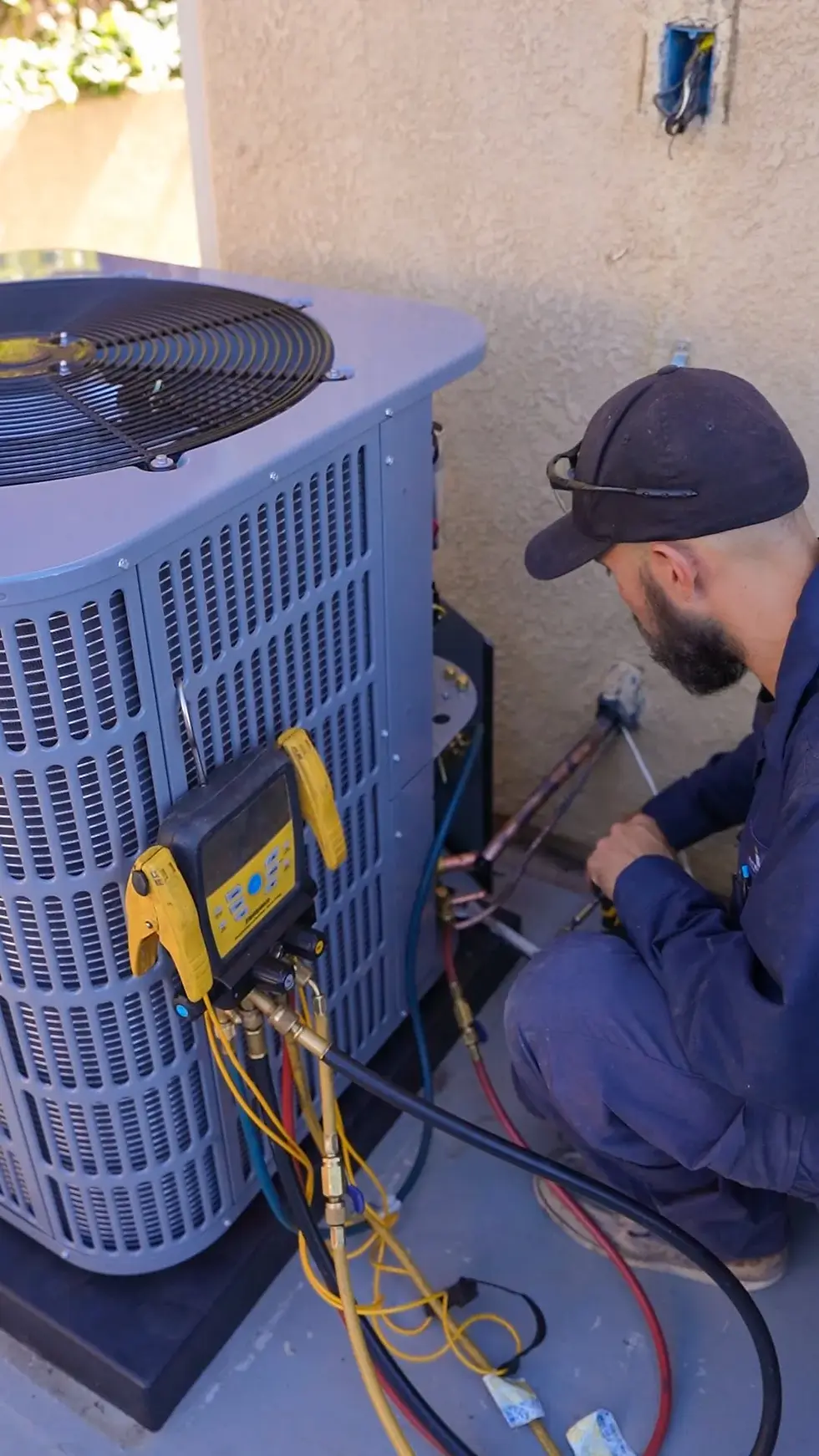How Your HVAC System Can Help Alleviate Allergy Symptoms
- Integrity Air

- Feb 7, 2024
- 3 min read
Updated: Apr 17, 2024
Are you tired of sneezing, coughing, and suffering from other allergy symptoms at home? Believe it or not, your HVAC system could hold the key to a more comfortable, allergen-free living environment.
This article explores how upgrading and maintaining your HVAC system can significantly alleviate allergies, ensuring your home becomes a sanctuary for everyone, especially allergy sufferers. Discover why investing time and attention into your HVAC system could be the game-changer for your indoor air quality.
Key Takeaways
Upgrade Your HVAC Filter: Use high-efficiency filters to trap smaller allergens.
Maintain Regular Cleaning: Dust and vacuum your home frequently to reduce allergen accumulation.
Control Home Humidity: Use dehumidifiers or humidifiers to keep humidity levels in the ideal range.
Schedule HVAC Maintenance: Regular check-ups can prevent allergen buildup in the system.
Consider Advanced Filtration: HEPA filters and UV purifiers can further improve air quality.
Allergens, such as dust, pet dander, and pollen, can accumulate in your home, significantly impacting indoor air quality and exacerbating allergy symptoms. Your HVAC system plays a pivotal role in circulating air throughout your home, which, if not properly filtered, can spread these allergens. Understanding the types of allergens and how they interact with your HVAC system is the first step in combating indoor allergies.
The Critical Role of Humidity Levels in Allergy Management
Maintaining the right humidity levels in your home can greatly affect allergy symptoms. Too much humidity encourages mold growth and dust mites, while too little can irritate respiratory pathways. Managing humidity levels through your HVAC system can help alleviate these concerns, creating a more comfortable and healthier living environment.
Why Your HVAC System's Filter Matters
The filter in your HVAC system is your first line of defense against airborne allergens. Regularly replacing or upgrading your air filter to one that can trap smaller particles can significantly improve your home's indoor air quality, reducing allergy symptoms. This section will discuss the different types of filters available and their effectiveness in trapping various allergens.
Air Ducts and Vents: Gateways for Allergens
Dirty air ducts and vents can harbor allergens and pollutants, circulating them throughout your home. Duct cleaning and maintenance essential for preventing the spread of allergens. This includes discussing how often duct cleaning should be performed and the signs that your ductwork may need attention.
The Importance of Regular HVAC Maintenance
Regular maintenance of your HVAC system can prevent the accumulation and spread of allergens in your home. This section will outline a maintenance schedule, including tasks that homeowners can do themselves and when to call in HVAC professionals.
Upgrading Your HVAC System for Allergy Relief
Sometimes, an older HVAC system might not be as effective in filtering out allergens or controlling humidity levels. Upgrading to a modern system or incorporating allergy-reducing components, such as HEPA filters or UV light purifiers, can make a significant difference in your home's air quality.
The Benefits of Advanced Filtration Systems
Advanced filtration systems, like HEPA filters, can capture a higher number of small particles, including many common allergens. This section explores the advantages of these systems and how they integrate with existing HVAC units to improve indoor air quality.
How to Keep Your Indoor Air Quality Top-Notch
Beyond your HVAC system, there are additional steps you can take to improve the air quality in your home. This includes regular cleaning practices, such as using a vacuum with a HEPA filter and dusting with a microfiber cloth, to reduce allergens on surfaces and in the air.
Identifying and Eliminating Common Household Allergens
Understanding the sources of indoor allergens is crucial in managing them effectively. This section will detail common allergens, including pet dander, mold, and dust mites, and provide strategies for minimizing their presence in your home.
Professional HVAC Services: When to Call in the Experts
While many HVAC maintenance tasks are suitable for DIY, there are times when it's best to call in the professionals. This section will cover the signs indicating the need for professional HVAC services, from repairs to complete system upgrades, ensuring your system is optimized for allergy relief.
Adopting these strategies can significantly impact the quality of life for allergy sufferers by turning their homes into a more comfortable, allergen-free environment.
Remember, managing allergies is a comprehensive approach that involves more than just medication; it's about creating a living space that supports health and well-being





Comments